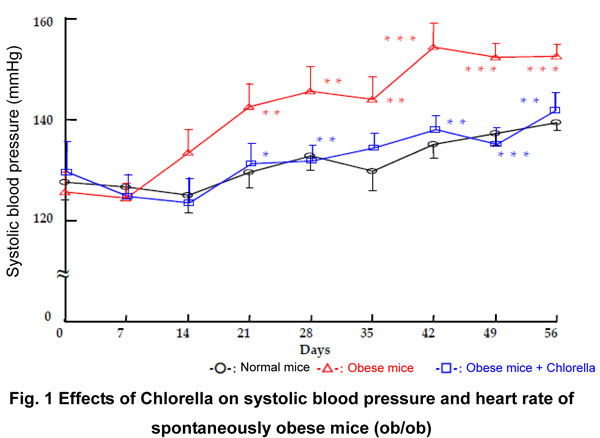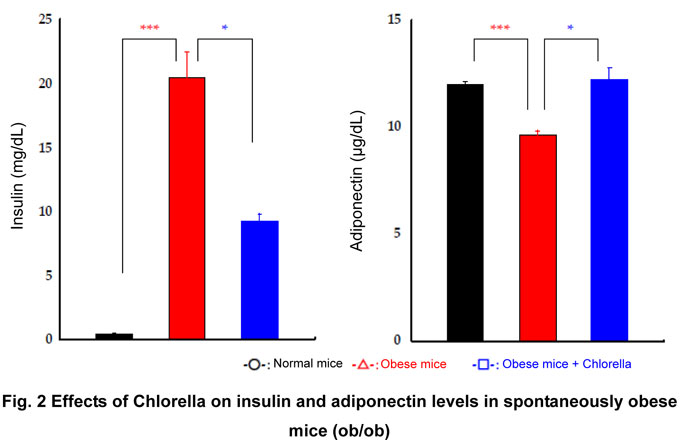- TOP
- List of reports
- The effects of Chlorella on metabolic syndrome are confirmed
The effects of Chlorella on metabolic syndrome are confirmed
【Scientific information】
Research and Development Department, Sun Chlorella Corporation
The effects of Chlorella on metabolic syndrome are confirmed
Research results are announced at the 81st Annual Meeting of the Japan Pharmacological Society (2008)
Metabolic syndrome involves the presence of multiple conditions in
combination, such as obesity, hyperglycemia, hyperlipidemia, and hypertension,
and has become a serious concern in Japanese society in recent years. Chlorella,
a health promoting food with a long history of use, is reported to be effective in
treating hyperlipidemia, hypertension, and diabetes. We also confirmed the
positive effects of Chlorella in our prior clinical study ("Analysis of gene expression
associated with consumption of Chlorella: A comparative analysis between a
Potential Lifestyle Disease Group and a Healthy Group"), in which consumption of
Chlorella decreased body fat percentage, blood glucose level, and total cholesterol
level. In addition, results of gene expression analysis confirmed that the insulin
signal pathway was reactivated, and that insulin resistance was improved. We
therefore suggested the possibility of Chlorella being effective against metabolic
syndrome.
We have recently confirmed that ingestion of Chlorella effectively promoted
the breakdown of fatty acids and stimulatory action of energy consumption, and
suppressed blood pressure elevation, increase in serum adiponectin, and
expression level of PPAR-α and UCP-1. We report our findings here.
- Study Objectives
- To elucidate Chlorella's improvement of metabolic syndrome and it's mechanisms of action, we conducted a study by using genetically obese mice as well as spontaneously obese mice (ob/ob mice) those develop obesity-related diseases.
- Method of experiments
- Mice were divided into three groups by different types of feed given such as a group of normal mice given ordinary feed, a group of obese mice given ordinary feed, and a group of obese mice given feed containing 5% of Chlorella. The mice were raised on these diets for 8 weeks, and we then measured their body weight, blood pressure, organ weights, amount of PPAR-α expressed in the liver and amount of UCP-1 expressed in brown adipose tissue. Also we had performed blood biochemical studies as well as urinalyses on them.
- Results
- By ingesting Chlorella, no alteration in body weight or visceral fat weight was observed. However, reduction of serum cholesterol level, improvement of insulin sensitivity, and suppression of increase in blood pressure were confirmed. Moreover, since an increase in serum adiponectin as well as expression level of PPAR-alpha and UCP-1 were confirmed, there is a prospect that ingestion of Chlorella had promoted the breakdown of fatty acids and increase in energy consumption.
- These findings confirmed improvement of metabolic syndrome by Chlorella.


Presented at a scientific meeting
- Scientific meeting :
- The 81st Annual Meeting of the Japan Pharmacological Society
- Title:
- The effects of Chlorella on metabolic syndrome using spontaneously obese mice
- Authors:
- Tohru Masuzawa1), Tohru Mizoguchi2), Noriyuki Yamazaki1)
- Affiliation:
- 1) NDDRC, Inc. 2) Sun Chlorella Corporation





